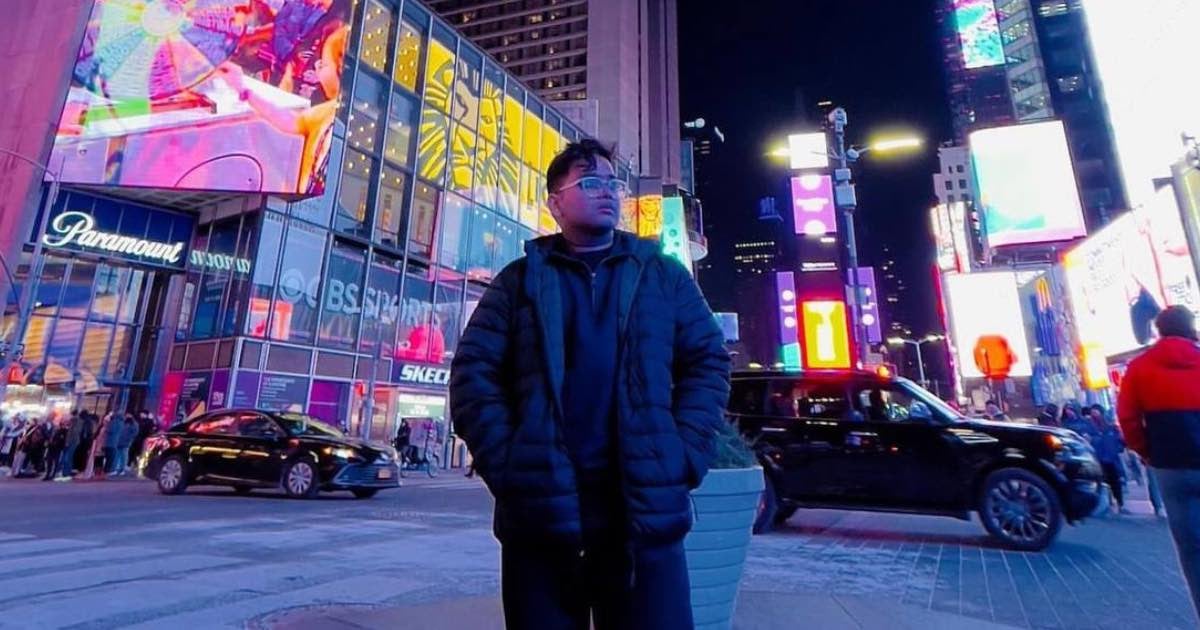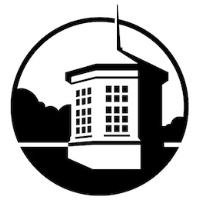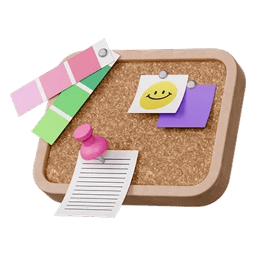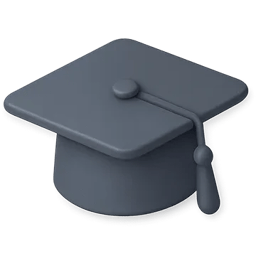¡Hola! Soy Fahim Mosharrof y soy de Daca, Bangladesh. Actualmente estoy estudiando en Haverford College, una de las principales universidades de artes liberales de Estados Unidos, donde me estoy especializando en Ciencias de la Computación y Física, con una especialización secundaria en Economía.
Antecedentes de la Escuela Secundaria
Durante toda la secundaria, asistí a la Escuela Mastermind en Dhaka, donde en octavo grado nos dieron la opción de tomar los O-Levels y A-levels a través de Edexcel o Cambridge. Elegí tomarlos a través de Cambridge. Estudié 10 materias para mis A-levels, incluyendo Química, Física, Economía y Matemáticas. Estudiar en una escuela privada con currículo británico ciertamente facilitó el proceso de solicitud hasta cierto punto. Al aplicar a través de Common App, por ejemplo, aceptan currículos estándar como IB, A-levels y AP. Por lo tanto, tomar exámenes bajo estos planes de estudio es beneficioso para una mejor representación de tus habilidades académicas.
Además, al asistir a una escuela de educación en inglés, no puedo hablar por otros, pero siempre parece haber una comunidad de estudiantes interesados o planeando aplicar al extranjero. Personalmente, encuentro este aspecto incluso más importante que el examen y el currículo, porque tener un grupo de compañeros que comparten objetivos similares es muy motivador. Abordar el proceso de admisión de manera colaborativa lo hizo más manejable en mi experiencia. Siempre he tenido un grupo de amigos de siete personas, y todos mis amigos ya están o van a ir a lugares de primer nivel este año. De hecho, llegué a los Estados Unidos con tres de mis siete amigos. Yo estoy en Haverford, uno está cerca en Cornell, otro en UToronto y otro lejos en Stanford. Además, este año, uno de mis amigos entró a U-Miami también.
Simplemente estoy tratando de decir que estas personas no van a aparecer mágicamente en tu vida cuando estés aplicando de la nada. Sin embargo, si puedes buscar el refugio de una comunidad, definitivamente hazlo con amigos. Hace que el proceso sea divertido y más fácil. Si observas de cerca, muchas personas que han tenido éxito en entrar a las mejores universidades recomendaron específicamente esto. Además, puedes estrategizar porque cuando estábamos aplicando, conocíamos los perfiles de cada uno y conocíamos los perfiles de las personas que habían entrado anteriormente. Así que cuando sabíamos mutuamente que cualquiera de nosotros podría entrar en la misma universidad, solíamos estrategizar nuestras solicitudes. ¿Qué quiero decir? Imagina que mi amigo y yo estábamos aplicando ED (decisión temprana) a la misma universidad prestigiosa sabiendo perfectamente que era la oportunidad de cualquiera, y que cualquiera de nosotros podría entrar. En ese caso, ¿por qué competir entre nosotros? Ambos perfiles eran muy fuertes y muy similares porque hice muchas Olimpiadas con él. Así que sus actividades extracurriculares eran mis actividades extracurriculares, y mis actividades extracurriculares eran las suyas. Entonces, ¿por qué hacer esto? ¿Por qué dejarlo al azar? En su lugar, discutíamos y terminábamos aplicando ED a dos universidades separadas. Así que cuando estás con amigos, puedes estrategizar. Puedes distribuir tus solicitudes. Recuerda que en lo que a ti respecta, estas universidades de primer nivel tomarán a una persona de Bangladesh ese año, así que pregúntate, ¿eres tú esa persona?
Por qué Estados Unidos y por qué Haverford
Quiero seguir una carrera en tecnología, aunque no estoy completamente seguro, estoy 50/50, tal vez 60/40, sobre si quiero comenzar una carrera en mi país de origen, en términos laborales. Sin embargo, estaba seguro de que quería que mis facultades académicas y nivel de habilidad en tecnología y ciencias naturales fueran más allá de lo que podría lograr en Bangladesh. Necesitaba la calidad educativa y los recursos que existen allí. Incluso si asistes a LACs, los laboratorios son muy avanzados en comparación con una universidad STEM de Bangladesh como BUET, la mejor universidad de ingeniería y tecnología en Bangladesh. No quiero menospreciar a nadie; solo digo que la extensión de los recursos es mucho mayor. Puedes aprender mucho más cuando tienes más instalaciones a tu disposición.
Había un motivo, y principalmente persigo, se podría decir, una doble pasión en el sentido de que persigo la tecnología, pero también estoy realmente interesado en las humanidades, especialmente en finanzas, economía y filosofía. Ganar múltiples olimpiadas internacionales de economía es también una de mis mayores actividades extracurriculares además de las olimpiadas de robótica que hice.
Entonces, si tuviera que resumir mi punto fuerte, diría que soy una persona técnica de corazón. He amado las computadoras desde muy joven, pero no quiero ser puramente técnico; no quiero ser una computadora. Amo la ciencia porque me encanta entender el mundo que me rodea, pero también quiero ser una persona integral. Quiero ser un emprendedor. Quiero entender a las personas, comunicarme eficazmente y simplemente ser un ser humano completo, no solo un "tech bro". Por eso elegí una universidad de artes liberales, para poder desarrollar esas facultades también. Las habilidades técnicas las puedo adquirir, y seré muy honesto contigo: estoy bastante seguro de que tu estudiante promedio de BUET superará mis habilidades de programación. Pero, ¿superarán mis habilidades intelectuales? Eso es lo que vine a aprender aquí.
Además, necesitaba cantidades sustanciales de ayuda financiera para cubrir los vastos gastos que conlleva ser un estudiante internacional. Por lo tanto, no requirió mucha investigación concluir que prácticamente ningún otro país proporciona eso de manera confiable excepto Estados Unidos.
Haverford, me encantó en términos académicos, entre otros factores. Tiene un excelente departamento de ciencias de la computación y uno de los mejores departamentos de física y astrofísica del país. Junto a eso, me encantó la ubicación. Situado justo a las afueras de Filadelfia, el ambiente parecía hermoso y lleno de eventos, por decir lo menos. Todos hemos crecido escuchando sobre universidades como Williams o Amherst, ¡pero cuando verificas su ubicación te das cuenta de que están en medio de la nada! En cuanto a Haverford, puedo ir a Washington en dos horas. Puedo ir a Nueva York en dos horas. Estas comparaciones pueden parecer insignificantes, pero créeme que cuando estás solo en este país como estudiante internacional, ayuda. También estaba familiarizado con algunos de los profesores en los departamentos de Física y CS. El departamento de CS es excelente para una universidad de artes liberales, y el departamento de Física es excelente, punto. El departamento de Matemáticas también es muy bueno. A pesar de tenerlo en tan alta estima desde el principio, no pude comprender lo increíble que era Haverford hasta que llegué allí. La gente, el ambiente, la ubicación: todo.

Mis Estadísticas
Mi promedio de calificaciones en la escuela secundaria es de 4.0. En cuanto a las notas y los A levels, tomé 10 asignaturas y obtuve A estrellas en todas ellas. En el nivel AS, tomé cuatro asignaturas y obtuve A estrellas en cada una. Cuando solicité, aún no había presentado mis calificaciones del nivel A2; apliqué antes de tomar los exámenes del nivel A2. Por lo tanto, mi escuela proporcionó calificaciones previstas para la solicitud. Recibí A estrellas previstas en los cuatro A levels basadas en mis resultados de AS. También tomé el SAT y mi puntaje total es 1480 (EBRW 720, Matemáticas 760).
Proceso de solicitud: Recursos, ensayo y rechazos
Un consejo rápido, aunque probablemente lo hayas escuchado muchas veces antes cuando estás solicitando, no elabores una solicitud genérica. Navegar por el proceso de solicitud para las mejores universidades requiere más que un enfoque común; exige una comprensión profunda de las ofertas y oportunidades distintivas de cada institución. Las universidades no son escuelas, por lo que no se trata solo de encontrar un lugar adecuado para ir y aprender de los profesores. Las universidades investigan; las universidades crean conocimiento. ¿Puedes contribuir a ese conocimiento? ¿Tienes el potencial para aprovechar sus recursos y contribuir a su investigación académica y comunidad? Eso es lo que también están buscando. En otras palabras, investiga bien.
Cuando solicité, completé mis solicitudes de forma independiente sin ayuda externa. Cada solicitud me llevó alrededor de dos semanas para completar. Mi ensayo universitario sigue un formato de montaje, dividido en cinco párrafos. Cada párrafo cuenta la historia de una cualidad de mi carácter que poseo hoy. Por ejemplo, un párrafo explica cómo aprendí responsabilidad y altruismo mientras crecía con padres trabajadores. Conecté esta experiencia con mi admiración por Batman, quien también creció sin padres, y cómo él y Spider-Man me enseñaron importantes lecciones de vida. El ensayo concluye con reflexiones sobre estas experiencias.
Lidiar con el rechazo fue un desafío, especialmente porque era nuevo en el proceso y desconocía cuántas personas usan agencias. Mi solicitud de Early Decision a Rice reflejó mi falta de experiencia y preparación. A pesar de los rechazos de las mejores universidades, encontré consuelo al ser aceptado en el Honors College de Michigan State con una beca que lo hacía económicamente viable. Definitivamente diría que estaba mejor preparado para las rondas de Regular Decision. Aunque desearía haber pasado más tiempo perfeccionando mis solicitudes, al final llegué a Haverford, así que valió la pena.
Actividades extracurriculares
Me hacen mucho esta pregunta cuando hablo sobre solicitudes y estudiar en el extranjero: "¿Debería hacer esto? ¿Tengo que tomar esa acción? ¿Debería ir a esa conferencia o competir en esta Olimpiada?" Es importante recordar que no se trata de tachar cosas de una lista. Hacer una solicitud para una universidad es como escribir una historia. Por ejemplo, si estás solicitando ingresar al departamento de física de Harvard, debes poder demostrar que tienes un interés verdadero y continuo en la física. Tus actividades extracurriculares y académicas deberían ser indicadores de tu progreso en esa área, en lugar de una compilación de logros no relacionados.
Permíteme explicarlo con una historia personal. A pesar de venir de una familia y un país que no eran muy expertos en tecnología, tuve un fuerte interés en las computadoras desde una edad temprana. Cuando tenía ocho o nueve años, la oficina de mi padre me regaló una vieja computadora Dell 3300, y ahí comenzó mi viaje. Curioso, la desarmé y la volví a armar, aprendí a instalar juegos, a utilizar la terminal y mucho más. Mi amor por la informática se hizo cada vez más evidente a medida que avanzaba en el sistema académico. Dos veces por semana en quinto y sexto grado, me ofrecía como voluntario para ayudar a mis compañeros que tenían problemas con sus tareas de informática. Esta pasión me llevó a participar en la Olimpiada de Informática y a ubicarme entre los 50 mejores en la Competencia Nacional de Codificación de Escuelas Secundarias. Como puedes ver, mi trayectoria expresa mi fuerte compromiso con la informática.
Más tarde, profundicé en la robótica, lo que me permitió convertir mi pasión por las computadoras en creaciones físicas. Aunque aprendí sobre robótica relativamente hace poco, participé dos veces en la Olimpiada de Robótica. Fui finalista en la Olimpiada de Robótica de Bangladesh. Luego obtuve una medalla de plata en la Olimpiada Mundial de Robótica de Bangladesh, que es una rama estadounidense de la competencia internacional.
Mi trayectoria también incluye un enfoque en finanzas y economía. Desde joven, me ha fascinado la economía. Me resulta fascinante cómo, al igual que la física, los conceptos económicos pueden aplicarse a situaciones del mundo real. Mi crecimiento y pasión en esta profesión se han demostrado al ganar una medalla de plata en la Olimpiada Mundial de Economía y la Olimpiada Global de Economía, y representar a Bangladesh en la Olimpiada Internacional de Economía.
Mi perfil también incluía mucha información sobre voluntariado. Contribuí al club de salud mental de mi escuela, donde respondía con ayuda y apoyo a personas anónimas angustiadas a través de Google Forms. También supervisé el club de servicio comunitario, que coordinaba campañas de alimentos y donaciones. Además de mis actividades académicas y trabajo voluntario, dirigí los clubes de robótica y negocios, participé en varios concursos empresariales y me ubiqué entre los 100 mejores del Young Tycoons Business Challenge, una competencia de presentación de startups.
Al reflexionar sobre estas experiencias, quiero enfatizar que la historia que estás escribiendo para tus solicitudes universitarias debe ser complementada por tus actividades extracurriculares. Se trata de mostrar tu crecimiento, entusiasmo y cómo puedes contribuir a la comunidad académica de la institución que elijas, no de obtener reconocimiento por el simple hecho de hacerlo. Con esta estrategia, tu solicitud realmente hablará por ti ante los comités de admisión en lugar de parecer una colección aleatoria de logros.
Después de la aceptación
Tengo alrededor de $17,000 en EFC. Haverford cumplió con todos mis requisitos. Las universidades privadas como Haverford proporcionan ayuda financiera en lugar de becas. A diferencia de las instituciones públicas en EE. UU. o las universidades canadienses, una beca no es la única forma de hacer que sea asequible para ti asistir. Por ejemplo, una universidad pública como la Universidad de Michigan no puede dar ayuda financiera a estudiantes internacionales. No pueden hacerlo porque hay dos fondos para ayuda financiera en EE. UU. Uno es a través de FAFSA y el otro es a través de CSS, que es de alrededor de $10 millones al año. Los estudiantes internacionales solo somos elegibles para el CSS. FAFSA es solo para estudiantes estadounidenses. Así que las universidades estatales como la Universidad de Michigan no pueden darnos ayuda financiera. Solo pueden dar becas. El problema con las becas es que son de monto fijo. Incluso si obtienes $100,000 en becas, se divide en cuatro años. Sin mencionar todos los otros costos subsidiarios que vienen con asistir a la universidad.
Uno puede recibir ayuda financiera basada en la necesidad en una universidad privada como Haverford. Cuando te aceptan, parece que te abrazan y luego hacen todo lo posible para que llegues allí. Ese es el concepto. Cuando me admitieron, necesitaba aproximadamente un 90% de ayuda financiera. Me dieron un 90% de ayuda financiera. Así es como funciona.
Hablando de todos los gastos secundarios que surgen, muchos estudiantes no se dan cuenta de que hay costos subyacentes a considerar una vez que ingresan a la universidad y se mudan a EE. UU. Por ejemplo, más allá de los libros y útiles, ¿hay otros gastos a tener en cuenta?
Los libros y útiles son probablemente lo menos costoso si pirateas todos tus libros. Pero aparte de eso, no es tan difícil entender que estás estableciendo una nueva vida en un nuevo país. Muchas cosas que dabas por sentado en casa ahora son un gasto. Por ejemplo, llegas y te das cuenta de que necesitas un espejo, una lámpara, cestas para guardar tus artículos de aseo y tu cepillo de dientes, cosas que simplemente estaban allí en casa pero que ahora no están aquí.
El transporte es otro gasto importante. El transporte desde el aeropuerto a la universidad, de la universidad al aeropuerto o a cualquier otro lugar al que necesites ir puede sumar. Los costos de suscripción son otro factor. Necesitarás suscribirte a una tarjeta SIM de EE. UU., lo cual es un costo. Los pequeños gastos se acumulan, como limpiadores, limpiacristales y suministros para el lavavajillas. Para la suscripción de la SIM de EE. UU., tienes que pagar regularmente. Por ejemplo, estoy suscrito a Mint, que es popular entre los estudiantes internacionales porque es el más barato. Pago por servicio ilimitado $15 o $30 al mes.
Sí, pueden parecer cosas pequeñas, pero como sabemos, las pequeñas cosas hacen una gran diferencia.
Haverford: Vida académica y estudiantil
En efecto, Haverford ha cumplido con mis expectativas, especialmente considerando nuestra cercanía a Bryn Mawr College. Estas dos universidades solían ser como hermanos; Haverford era exclusivamente para hombres, y Bryn Mawr seguía siendo exclusivamente para mujeres. Eso fue antes de los años 70. Son una gran combinación. Lo menciono porque Haverford incluye a Bryn Mawr College además de Haverford College, el campus y todas sus instalaciones.
Nos inscribimos a los cursos en el mismo sitio web, así que estamos verdaderamente integrados. El proceso de inscripción para los cursos en Bryn Mawr es idéntico al de Haverford. Ambos campus aceptan nuestra tarjeta única para registrar nuestra entrada a los edificios. Puedes llegar en cualquier momento para comer y asistir a clases. Cada universidad también tiene su enfoque artístico. Haverford, por ejemplo, se especializa en música, mientras que Bryn Mawr se especializa en estudios de cine y tiene un teatro más grande, entre otras cosas. Así que podrías venir a Haverford y pensar: "Oh, mi universidad no tiene piscina". No, sí la tiene, solo tienes que ir a la otra en el autobús azul que pasa cada 15 minutos y es gratuito. Así que siento que la principal ventaja es la gran cantidad de opciones, sin duda.
En cuanto al equilibrio entre el trabajo y la vida en Haverford, depende de tus cursos y actividades extracurriculares. Después de entrar a la universidad, las actividades extracurriculares solo se vuelven más intensas. Rápidamente te darás cuenta de que hay demasiadas cosas sucediendo en el campus como para mantenerte al día con todo. Y eso viene de una institución muy pequeña (Haverford), no de una gran universidad. Sí, tendrás que trabajar si eliges cursos desafiantes como yo lo hice. Sin embargo, tener una relación cercana con tus profesores y asistentes de enseñanza es beneficioso.
Todos tenemos una conexión personal con nuestros profesores. Conocen nuestros nombres, saben quiénes somos. En lugar de una gran universidad donde tienes 300 personas en una clase contigo, aquí tienes como máximo, digamos, 30. Tu profesor te conoce. Además, si surge algo, puedes decir: "Profesor, estoy trabajando, mi trabajo acaba de comenzar, tuve esta conferencia a la que tuve que asistir y no puedo entregar esta tarea a tiempo". Puedes ser humano con ellos, y ellos lo entienden.
En este entorno, ya no es como si fuéramos profesores y estudiantes. En el mundo de la investigación y la academia, tu profesor y tú son técnicamente colegas. La diferencia es que ellos están mucho más avanzados en la investigación que tú, pero ambos hacen el mismo trabajo de impulsar esa investigación. Tener esa conexión personal ayuda mucho. No me avergüenza decir que pido muchas extensiones y persigo mis otras pasiones, y ellos siempre son muy razonables. La carga de trabajo es exigente, pero las personas la hacen manejable.
El cuerpo estudiantil no es tan diverso como en algunas otras universidades. Puede que no se sienta tan diverso porque incluso si las proporciones son correctas, los números absolutos son más bajos. Por ejemplo, si Cornell tiene un 5% de estudiantes del sur de Asia de 15,000 estudiantes, eso son cientos de sudasiáticos. Pero si Haverford tiene el mismo 5% de 1,200 estudiantes, eso es solo un puñado de personas.
Sin embargo, la comunidad es muy acogedora. No he experimentado ningún tipo de rudeza o comportamiento negativo de nadie aquí. Más bien, me observo a mí mismo para asegurarme de no mostrar ningún tipo de comportamiento adverso.
Más allá de las clases, trabajo, participo en clubes y podría hacer viajes durante los descansos. Por ejemplo, tengo dos trabajos en el campus y soy miembro de la junta del club de CS. Estamos trabajando en un proyecto semestral juntos. En las vacaciones de primavera, seguramente me verás viajando a Nueva York. ¡También fui a Nueva York durante el descanso de otoño! Entre estos esfuerzos y los estudios, se te acaba el día. No te sientas pensando: "¿Qué voy a hacer?" Siempre hay algo que hacer.
Apoyo para Prácticas
Tenemos nuestro CCPA, Centro de Asesoramiento Profesional y de Carrera. Ellos te ayudarán con los currículums y a conectarte con los exalumnos. También tenemos una red social separada de Haverford llamada Haverford Connect, o HaverConnect, que es básicamente una plataforma con todos los exalumnos. Nuestros exalumnos son, de hecho, una gran ayuda para aquellos que la necesitan.
No puedo hablar de las prácticas fuera del ámbito tecnológico porque no tengo experiencia en lo que requieren, pero para las prácticas en tecnología, tienes que construir tu currículum, hacer proyectos, practicar preguntas de estilo de entrevista, y todo eso puede recibir ayuda. Tenemos apoyo para eso dentro del club de CS que mencioné anteriormente. Así que sí, conéctate con los exalumnos, usa el CCPA y Haverford Connect. Tus compañeros, diría yo, son los mejores recursos para las prácticas porque las universidades no están exactamente enfocadas en conseguirte un puesto en, digamos, Google. Francamente hablando, no es su prioridad, así que estás prácticamente por tu cuenta en este aspecto.
Objetivos después de la graduación
Seré muy honesto, no estoy completamente seguro. Sin embargo, en este momento, me inclino principalmente hacia una carrera en física. Todo lo que hago probablemente complementará eso. Teniendo un gran interés en la física computacional, actualmente estoy cursando una licenciatura tanto en informática como en física, y planeo hacer mi maestría en informática. Para cuando haga mi maestría en informática, creo que tendré suficientes habilidades en el funcionamiento interno de los compiladores, las computadoras y los algoritmos para transferir ese conocimiento y avanzar en mi investigación en física.
Como mencioné, quiero hacer un doctorado en física. Haverford contribuirá enormemente a eso, especialmente porque tenemos una conexión muy personal con nuestros profesores. Esto es muy útil cuando tienen que escribir cartas de recomendación para las universidades de posgrado a las que vas a aplicar. A menudo, descubrirás que los profesores aquí son de las universidades a las que estás aplicando. Casi todos los profesores aquí tienen un doctorado de la Ivy League, por lo que a menudo pueden hablar con sus amigos que residen en esas universidades. Así que sí, tener esa conexión personal definitivamente ayuda, en lugar de estar en una clase donde tu profesor tiene que escribir cartas de recomendación para 500 estudiantes, lo que resulta en cartas muy estándar y genéricas.
Mi Consejo
Empieza temprano. Asegúrate de que realmente quieres aplicar al extranjero y comienza pronto. Prepárate con anticipación. Ponte en contacto con la comunidad de admisiones y aplicaciones, algo que yo no hice en absoluto. Te lo digo por experiencia: si hubiera sabido que existía y hubiera empezado a aplicar y prepararme antes, todo habría sido diferente. Si pudiera volver atrás en el tiempo, habría comenzado a pensar en las aplicaciones un año y medio antes de lo que realmente lo hice. Es una especie de milagro que haya logrado hacer lo que hice en tan poco tiempo.
Y de nuevo, involúcrate con la comunidad de aplicaciones. Únete a grupos como Bangladesh Beyond Borders (un grupo de Facebook creado para estudiantes de secundaria en Bangladesh que desean estudiar en el extranjero). Visita comunidades de Reddit (como IntltoUSA), mira lo que la gente está diciendo y lo que está haciendo. Interactúa con videos de YouTube y otros recursos y, por supuesto, involúcrate con la universidad. El interés demostrado es una parte del proceso de aplicación que yo me salté por completo. Estás mostrando interés demostrado cada vez que reservas un tour por el campus, te suscribes a su lista de correo electrónico o tienes una entrevista. Tus interacciones quedarán en sus registros, y cuando comiencen a revisar tu aplicación, verán que has estado interactuando con el material de la universidad durante los últimos años, por ejemplo. Ahora bien, el interés demostrado no hará o deshará tu aplicación —de hecho, ninguno de estos consejos te garantizará una aceptación— pero ciertamente ayuda. Siempre es beneficioso comenzar temprano, comunicarse y trabajar duro.






